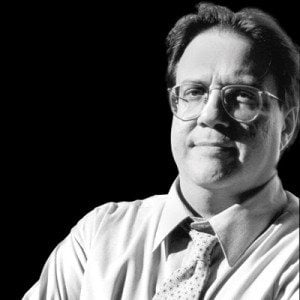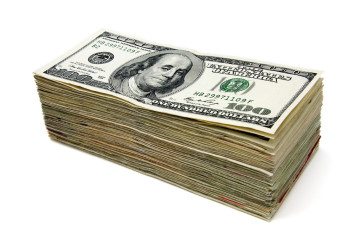
Who’s Footing the Bill for Investigative Journalism?

A version of this story ran in the November 2013 issue.

If you want to get rich in journalism, one way—maybe the only way—is to host droning conferences and symposiums to debate the fate of the news industry. That’s where the fat money in the news business is. Just launch another roundtable and let the Cassandras, Thomas Malthus acolytes and Chicken Littles have at it.
Then hold a panel discussion about how to monetize the news. To make sure you draw a crowd, bring Spiro Agnew back from the dead as your keynote speaker so the bribe-taking Nixon sycophant can explain why we need more happy news, and how it’s the investigative reporters, those “nattering nabobs of negativism,” who are driving the decline of the news business.
The fact is that nobody knows where the hell to find the profits to pay for increasingly rare kick-ass investigative reporting in a state as perpetually crooked and underreported as Texas.
The Texas Tribune has its model: Take donations from as many folks as possible and profess editorial independence from all of them. The Texas Observer scrambles from year to year relying on the wallets of liberals who like the magazine’s mission—or personally liked Molly Ivins enough to help keep the publication she once edited afloat. (You can tell from the magazine in your hands that it sure ain’t relying on advertisers.)
But bless us all, no newspaper has experimented more, tinkered more, or thought about survival in a big, public way more than The Dallas Morning News. Dallas’ daily remains the agenda-setting news organization in the state, and repeatedly changes direction in an ongoing attempt to stay financially afloat in this age of News 2.0.
Here’s more proof: The paper just quietly announced that it is abandoning a radical strategy it started in early 2011 with the erection of a paid firewall between customers and digital content. In that failed strategy’s place comes a new experiment; this one entails giving away the paper’s news for free, but charging customers extra for a “premium digital experience.”
What does that mean?
The Dallas Morning News, which is studied by every newspaper executive in America (while its stories are read and aped by most mainstream reporters in Texas), will now charge extra for “premium” content, which amounts to a multimedia-driven collage of extras including links and interactive material and advance notice of upcoming events. It’s like charging only for dessert, if the dessert is eye candy: some infographic appetizers, a side of salted social media, a flight of multimedia “experiences.”
In short, you’ll be able to go to the paper’s site and choose the free news option, or the visually enhanced option for $11.96 a month. It’s a model that The Washington Post has also been toying with.
Dallas’ daily has experimented before. The most horrific example was an abysmal failure called “The CueCat.” Basically, the paper distributed scanners that readers were supposed to wave over the printed paper, ads and all, while staring at their computer screen as related content suddenly appeared online.
It was like being asked to drive a car with a horse attached to the front bumper. That multimillion-dollar experiment is now enshrined in the annals of American journalism’s truly dumb moves. Friends tell me some of the scanner devices were used for target practice in Dallas urinals.
Still, that fiasco aside, no regional paper in America has been as aggressive in trying to map a route to its own survival. What’s happening now in Dallas will be monitored, and there’s a good chance it will be replicated.
The Morning News was once run by Ted Dealey, who was so steadfast in his arrogant extremism that he called President Kennedy, to his face, a little child—and then ordered his reporters to investigate ridiculous, scurrilous, salacious rumors that Kennedy had once been secretly married to another woman. It was Dealey’s version of the Obama “birther” story.
The paper has clearly moved on from those dark days. And now they’ve owned up to their monetizing mistakes. The firewall didn’t work, it didn’t drive profits, and it didn’t allow the paper to spend more on newsgathering.
So they’re tweaking again, and betting that the market for bells and whistles is large enough to allow the paper to provide the hard news for free. Because one way or another, news isn’t free.
Editor’s Note: When this story was published we did not mention that Bill Minutaglio previously worked for the Dallas Morning News.
Photo via Emergency Dentists USA


